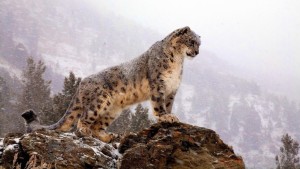Anthropology in action Teams up with Sustainability Studies:
October 13th 5:30 PM
Tuesday OCT 13 2015
5:30 pm
HUB Monongahela
A monthly series highlighting the work of today’s Anthropologists
Come see what anthropologists do! This semester’s topics include paleobotany, snow leopard conservation, and international development.
Extra Credit vouchers provided
Since the last fifteen years, I have been involved in a conservation project in Pakistan that seeks to resolve snow leopard-farmer conflict by compensating the farmers for their losses of domestic livestock to snow leopards. Most conservation institutions oppose such program on the grounds that such mechanism are unsustainable ways of tackling the problem as they require injection of constant financial resources from the outside. I argue that resistance on part of the conservation institutions to direct compensation is based on two interrelated factors. The first factor is regarding the nature of relationship between wild and domesticated or nature and culture, as perceived by them. Conservationists believe that the two are autonomous self-regulating entities that do not and should not overlap, hence the resistance to compensation as it will undermine this autonomy by legitimizing a flow of resources across wild and domesticated. The second reason is that direct compensation will upset the current status quo that controls the relationship between local communities and outside conservation actors. Direct payments to farmers for their support for snow leopard conservation has the potential to subvert the existing power relations in which outside conservationists have a privileged position. By maintaining their role as provider of technical help and expert advice along with some financial resources, outside conservation organizations privilege their role as indispensable partners in conservation.
